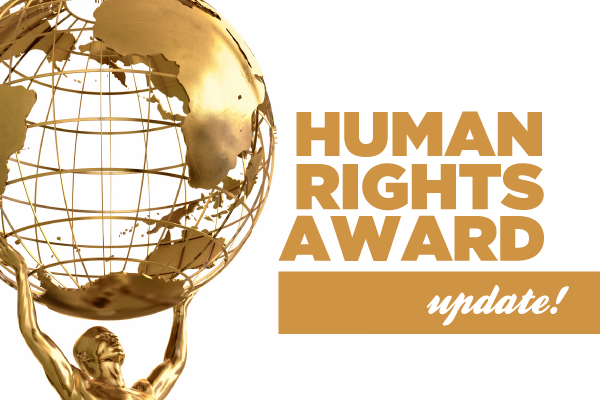
Last October, during the human rights conference, Joyce Hendy was awarded our annual human rights award. We recently caught up with Hendy to find out more about her legacy in our union and to pick her brain about human rights.
Before 1990, the human rights committee (or, as it was once called, the equal opportunities committee) was made up of appointed representatives, as opposed to elected ones.
“They were appointed by their respective [regional] vice-presidents or the national president,” explained Hendy. “One of the drawbacks of this status is that they didn’t have an official voice on the National Executive – they reported through the national president.”
As part of her work leading up to the 1990 convention, Hendy chaired a committee that saw the Vice-President of Human Rights become an elected position – and one that had a voice on the National Executive.
Hendy’s committee also led our component to adopt a clear and inclusive family policy.
“[The Union of National Employees] was one of the first components to have such a policy,” said Hendy. “And it’s still a leader in terms of what family cares costs it covers for activists.”
The policy makes it easier for activists with family care issues to participate equitable in their union, she said.
How far we’ve come
A lot has changed, on the human rights front, since Hendy first became an activist at the national level in 1987.
“There were no equity committees,” explained Hendy. “Equal pay had not been achieved, gay rights weren’t on the radar, First Nations issues were not discussed, and no one even considered that mental health issues were human rights issues – or ones that unions should take on.”
“The union I first became a part of in the 80s is not the same union that we know today,” she added. “The most significant change has been the inclusion and participation of the various equity groups.”
“We are a much better union as a result of the inclusion of all our members in the decision-making process.”
Looking towards the future.
Like most of us, Hendy recognizes that the union has some tough challenges. She pointed to an increasingly global marketplace and an (equally) increasing anti-union atmosphere as two issues that will make it difficult for unions to hold on to the gains they’ve made.
“The challenge will be to educate our new, younger members as to what has been won over the years and the reasons for continuing to push the agenda forward,” said Hendy.
“Many of these new workers do not understand how hard it was to win these rights.”